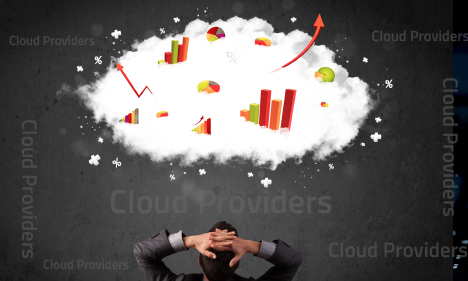Researching cloud providers? Here is a checklist to help you get started
With dramatic implications such as rapid time-to-value, reduced deployment and ownership costs, energy efficiency, and a low overall TCO, it is no wonder that your organization is exploring the cloud as the ideal platform for deploying new applications or migrating existing ones.
However, don’t rush your evaluation. Did you know that Gartner is predicting that 1 in 4 cloud providers will be gone by 2015? Therefore, think long-term and invest time and efforts to identify the provider(s) that are right for you and your organization. Here are some quick notes with questions to ask to help you get started.~ Just print it out and discuss them with your potential providers.
| Evaluation Guidelines - Questions to ask | Yes | No | Not sure |
Location/Multi-tenancy | |||
Where are your servers located? Can we select where our data will be stored?
| |||
| Do you have any safeguards in place to prevent potential data compromise in a multi-tenancy model? | |||
| What is your geographical expansion roadmap? Are you adding more cloud locations? | |||
| Will you give us notice when contemplating contracting out to other cloud providers? | |||
| What format will you use to store our data? | |||
| Can you handle demands for increased capacity or spikes due to rapid growth? | |||
Business Continuity/Disaster Recovery Plans | |||
| What type of Business Continuity/Disaster Recovery plans do you have in place? | |||
| Do you redundant or fail-over systems? | |||
| Do you automatically back-up data and applications in multiple cloud locations, in case a location fails? Are backups stored in safe, secure and fireproof locations? Where are they located? How often do you back-up your data? | |||
| Do you recommend that we safe-harbor our data? | |||
| Can we maintain a local backup of our data? (Note that this is critical in the event that your cloud provider goes under….) | |||
| In the event that you cease business, how long will it take us to get our data? | |||
Security: This is a critical area, especially if you need to comply with data-focused regulations (SOX, HIPAA, PCI, FISMA and others) | |||
| Do you have a Privacy and Confidentiality Agreement? Who is responsible for the security of our data? Do you have compliance and data security policies in place to protect sensitive data that may fall under compliance regulations? | |||
| Who has intellectual property and/or ownership rights for our data? | |||
| Can you operate properly if we encrypt our data? | |||
| What type of security mechanisms do you have in place (e.g. Intrusion Detection and Prevention Systems, Spam and virus filters, role-based access, SSL tunneling, etc.)? Are your facilities Type 2 SSAE 16 SOC 1 certified data centers? | |||
| Have you ever experienced a security breach? If so, how did you respond to it? | |||
| Do you perform audits on a regular basis that are conducted by reputable 3rd party experts? Can we see the audit reports? How often do you have your security audited? | |||
| Who will be able to access our data? | |||
Performance/SLAs | |||
| What are your guaranteed SLAs? Are both availability and performance spelled out in the agreement? | |||
| How do you calculate “up” time? What is your "up" time history? | |||
| If your services went down, what was the longest time period they were down? | |||
| How do you monitor your SLAs? What happens in the event of an SLA violation- for example will you indemnify us for losses or delays? | |||
| Will our applications offer consistent response time across geographies? | |||
Support | |||
| How long have you been operating? | |||
| What type of support services do you offer? What are your support hours? | |||
| Do you have emergency contact information? | |||
| Do you have any reference customers? Can we speak with them? | |||
Pricing | |||
| What is your initial set-up fee? | |||
| Do you invoice your services on a utility computing basis? | |||
| Will we get automatic notifications if we are approaching our monthly consumption allocation? | |||
| Can we reduce capacity (and at what cost) if our needs change? | |||
| Is there a cap on price increases? | |||
| Can we terminate your service? Is our data available after termination and for how long? Who is responsible for transition support? | |||
As you can see, there are many factors to consider! While your cloud providers are trusted partners that can help reduce costs, increase efficiency and grow your business, you should always validate for yourself your SLAs and performance, since your end-users will hold IT ultimately responsible for their experiences.
Regardless of where you are, running in your datacenter, evaluating cloud providers, in the midst of a migration or fully running in the cloud, Site24x7 has you covered!
Only Site24x7 gives you in ONE solution, delivered from the cloud:
1. Proactive Web Performance Monitoring from 50+ worldwide monitoring nodes –so you can continuously test and monitor your Web applications from your users’ perspective
+
2. Complete visibility and control over you ENTIRE infrastructure, including datacenters, private and public clouds
+
3. Deep application code visibility across all components starting from URLs to SQL queries – so you can immediately identify root cause
Check it out and sign up for a free trial.
Good luck in your cloud endeavors!
